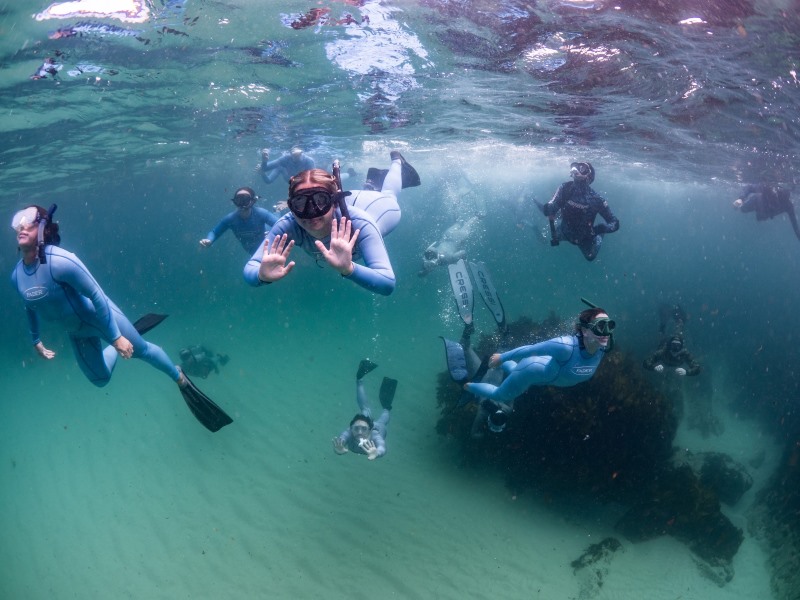Water quality and litter

Our Water quality and litter projects

Risk-based framework for urban waterway health
Apply the Risk-based Framework in South Creek as an urban diffuse source water pollution pilot.

Building capacity on the risk-based framework
Helping waterway managers and industry understand how to apply the 'Risk-based Framework for Considering Waterway Health Outcomes in Strategic Land-use Planning Decisions' through workshops, resources and other tools.

Risk-based framework for regional waterway health
Support the establishment of a new governance framework for the Richmond River catchment to manage diffuse source runoff in a regional area.

Diffuse source water pollution governance framework
Improving management of water pollution from diffuse sources in NSW.

Water quality working group
Working with other government agencies to improve the management of the marine estate’s water quality.

Coastal floodplain prioritisation study
Assessing coastal floodplain systems and infrastructure to assist decision makers in the enhancement of water quality, habitat and biodiversity.

Fish friendly workshops for councils
Delivering an education program to council staff about the protection of fish and fish habitat.

Construction sediment management
We are helping protect our waterways by providing accessible, best practice advice on erosion and sediment control for small scale building sites.

Review of the NSW Water Quality Objectives
Updating the NSW Water Quality Objectives for NSW coastal catchments.

Clean coastal catchments on-ground
Undertake on-ground works in coastal catchments to improve land use practices that reduce nutrient and sediment run-off from the blueberry, greenhouse vegetable and intensive livestock industries.

Oyster reef restoration and research
Restoring and researching natural oyster reefs to improve water quality, aquatic habitat and biodiversity.

Riverbank vegetation improvements
Rehabilitating degraded riverbank vegetation to reduce sediment and nutrient runoff into waterways, help stabilise riverbanks and improve biodiversity.

Riverbank stabilisation
Protecting riverbanks from erosion to reduce the amount of sediment entering waterways.

Coastal wetland rehabilitation
Rehabilitating degraded wetlands to improve water quality, habitat and biodiversity within the wetland and downstream.

Improving roads and tracks
Reducing sediment runoff into waterways from gravel roads and tracks by works such as road sealing.

Marine litter campaign
The Marine litter campaign supports both the NSW Litter Prevention Strategy, and the Marine Estate Management Strategy, extending the ‘Don’t be a Tosser!’ litter campaign message to include the marine estate.

Clean coastal catchments research
Working with farmers to keep sediment and nutrients on farms and out of coastal waterways. This is better for the environment and can support profitable and sustainable agriculture.

Marine debris research and management program
Our scientists and collaborators are working on a strategic program to tackle the threats of marine debris in NSW.

Landuse pressures on the marine estate
Working to better understand pollution from agriculture and stormwater to help protect our coastal waterways.

Estuarine water quality monitoring
Monitoring the water quality and health of estuaries to detect problems and see the benefits of improved management.

Mapping outflow events
Mapping the flow of freshwater from rivers into the sea and measuring how much it impacts marine ecosystems.

Clean coastal catchments monitoring
Clean coastal catchment monitoring will assess the benefits of on-ground activities that aim to reduce diffuse-source water pollution.